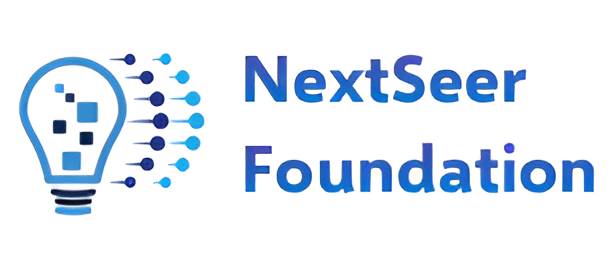Reviewer Guidelines
All manuscripts submitted to the Journal of Computers and Intelligent Systems (JCIS) undergo a thorough blind peer-review process to ensure alignment with the journal's scope and to guarantee their academic quality and novelty for our readers. As a reviewer, it is imperative that you adhere to these high standards. The following guidelines outline your responsibilities as a reviewer and highlight the ethical obligations you have towards both the journal and the authors. Additionally, this document will familiarise you with the key aspects to consider when evaluating a manuscript, ensuring consistency with other reviews requested by the journal. This uniform approach is essential, as all submissions to JCIS are assessed on an equal basis.
| Responsibilities as a Reviewer |
|---|
As a reviewer, you will be tasked with thoroughly examining the manuscript and assessing its appropriateness for publication in JCIS, taking into account its scientific merit. It is expected that you provide feedback to the authors that is constructive, impartial, clear, and forthright, aiming to guide them in enhancing the quality of their manuscript. Aligned with JCIS's commitment to nurturing emerging scientists, the journal seeks to foster improvement in the academic writing and research skills of all authors, irrespective of whether their submissions are accepted. Consequently, any reviewer comments that may diminish or dissuade an author from resubmitting to this journal or any other will not be accepted. Reviews should be discerning but not detrimental to the accuracy of scientific communication.
| Considerations before accepting a manuscript review |
|---|
Before committing to review a manuscript, it is crucial to ensure that you possess the requisite expertise and time to conduct a thorough and critical evaluation of the article. Please take the following into account:
Relevance to Your Expertise: Confirm that the manuscript aligns with your area of expertise. Log in to your JCIS account and review the abstract to determine the compatibility between the manuscript's subject matter and your field of expertise.
Time Commitment: Assess whether you can complete the review within the stipulated timeframe of three weeks. If you are unable to meet this deadline, promptly inform the editor. Additionally, propose an alternative reviewer if possible. In the event that you initially agree to review but later realise you cannot meet the deadline, contact the editor at the earliest opportunity.
Conflict of Interest: Evaluate for any potential conflicts of interest that might compromise your impartiality in assessing the manuscript. If a conflict exists, promptly inform the editor and recuse yourself from the review. If a conflict arises during the review process that was not apparent initially, contact the editor immediately, providing an explanation for your inability to continue.
Ensuring these considerations are addressed beforehand contributes to a fair and effective peer-review process for the JCIS Research Journal.
| Review Process Guidelines |
|---|
JCIS employs an online submission and peer review platform. Upon receiving a review request for a submitted paper, the reviewer will receive a dedicated journal account. This account facilitates access to the abstract, enabling the reviewer to make an informed decision regarding their willingness to undertake the review. To initiate the review process, log in to your designated reviewer account, review the provided abstract, and communicate your decision to accept or decline. In the event of declining the review, kindly state the reason and, if feasible, suggest an alternative reviewer with expertise in a similar field. To uphold the transparency of the peer-review procedure, all subsequent communication will occur within the system. Reviewers will be granted access to the complete manuscript and provided with a dedicated review page for feedback submission. Additionally, reviewers have the option to include comments directly on the manuscript file. In such cases, it is imperative to ensure that all comments are anonymous and focus solely on the article's content rather than its layout or formatting.
| Fundamental Criteria |
|---|
Reviewer Guidelines for JCIS Research Journal Fundamental Criteria A comprehensive review should encompass both the overall manuscript quality and the precision of its details, as the former significantly relies on the latter. When assessing a manuscript for JCIS Research Journal, consider the following elements:
Scope
- Evaluate if the manuscript aligns with the scope of JCIS.
- Assess the potential interest of the article to the journal's readership.
novelty of the Research
- Examine the extent to which the article introduces novel and engaging concepts.
- Determine if the research contributes new knowledge to the field.
Appropriateness of the Title
- Verify whether the title accurately reflects the content of the manuscript.
Content Quality
- Assess adherence to JCIS's standards.
- Consider the significance of the research question and its impact on current knowledge in the field.
Methodology
- Evaluate the clarity and conciseness of the methodology description.
- Assess the precision and appropriateness of the research's experimental design.
Significance of the Results
- Determine the implications of the results for computing and society.
Appropriateness of Tables, Figures, and Supplemental Material
- Assess the necessity and accuracy of each figure and table.
- Evaluate the relevance of supplemental material to the manuscript content.
Completeness of the Data
- Examine the extent to which the data are comprehensive and well-presented.
Relevance of the Discussion
- Evaluate the connection between the discussion and the results.
- Assess if the authors appropriately contextualise their findings within existing research.
Appropriateness of Citations/References
- Confirm that all citations are included and relevant.
- Assess whether the citation quantity aligns with the content.
Clarity of the Content
- Consider the clarity of English language usage.
- Assess whether the content is easily understandable for JCIS's readership.
Adherence to JCIS's Guidelines
- Confirm compliance with the journal's guidelines, including manuscript structure.
- Verify if tables and figures have been submitted separately, as required.
Adherence to Correct Scientific Nomenclature
- Check if species names are current and correctly spelled.
- Evaluate the accurate use of technical terms in the manuscript.
| Ensuring Constructive Feedback |
|---|
Ensuring Constructive Feedback It is crucial to guarantee that all feedback provided is constructive and aimed at enhancing the quality of the manuscript or assisting authors in understanding areas for improvement. Please refrain from making comments that deviate from this objective. Adhering to Sound Commenting Practices. For instance:
- Avoid expressing opinions on the manuscript's acceptability, and steer clear of proposing revisions as prerequisites for acceptance.
- Furnish detailed and unambiguous comments.
- Maintain a tone of respect and positivity. Your objective is to aid authors in enhancing their article by offering constructive criticism and valuable suggestions. (Consider the type of feedback you would appreciate for your own manuscript.)
- Emphasise sections requiring clarification or further elaboration by the authors.
- Propose recommendations on how authors can enhance problematic passages. How can they improve the clarity of specific sections?
- While not obligatory to edit the authors' style or grammar, any enhancements to the manuscript's clarity are highly valued, especially concerning technical terms.
- Identify consistent instances of outdated or misspelt technical terminology.
- Refrain from making dogmatic statements. Ensure that your comments are supported by evidence or precedence in previous literature.
- Exercise caution not to dismiss the manuscript, whether in terms of its novelty, methodology, or findings.
| Recommendations |
|---|
As a reviewer for the JCIS Research Journal, your ultimate responsibility is to provide a recommendation for the submitted manuscript. Your recommendations may fall into one of the following categories:
- Accept as is
- Accept with minor revisions
- Accept with major revisions
- Accept with major revisions (requiring a re-review)
- Reject with a recommendation to re-submit after further development
- Outright rejection
In the case of rejection, it is crucial to provide a detailed explanation for your decision, outlining the specific reasons for rejection. Each recommendation should be grounded in the factual evaluation of the manuscript and supported by constructive criticism. It's important to note that you are one of at least two reviewers, and even if your recommendation differs from other reviewers, a comprehensive critical review will assist the editorial board in making an informed final decision. Keep in mind that the editorial board, not individual reviewers, has the authority to make the ultimate decision on the manuscript, taking into consideration the recommendations from each review. Your recommendation may not necessarily align with the final decision.




